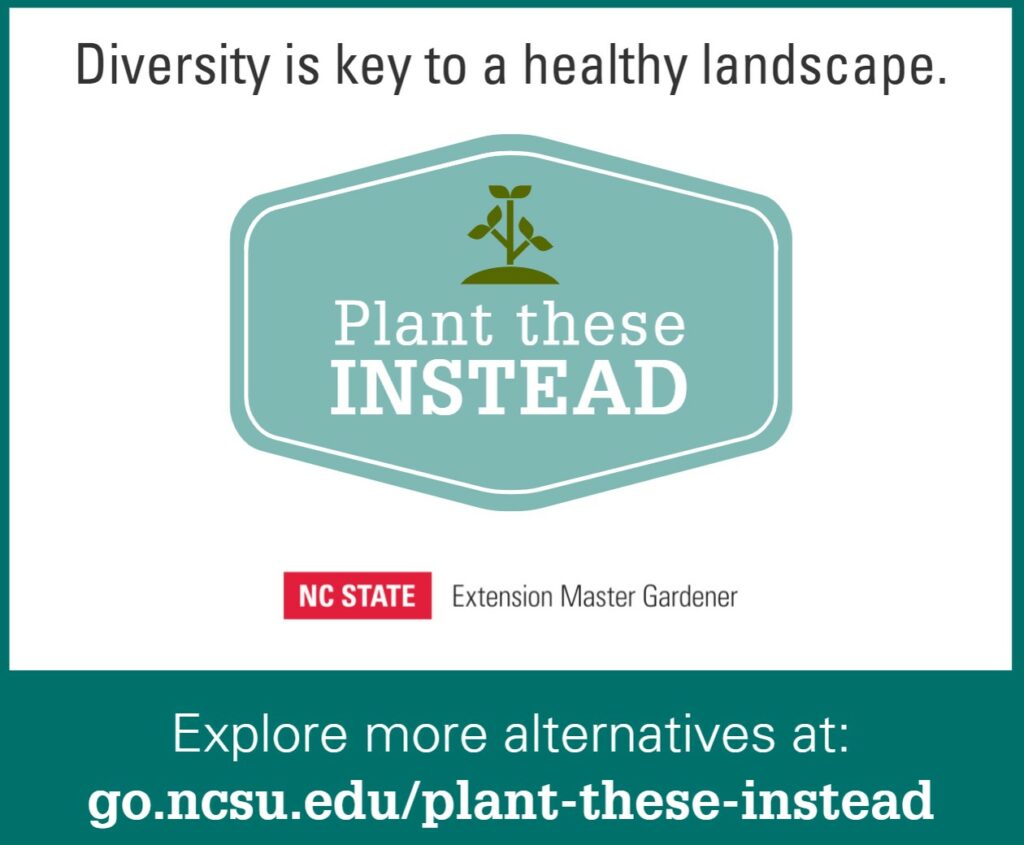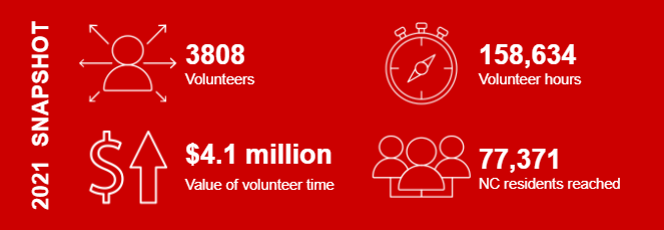Plant These Instead!
go.ncsu.edu/readext?849239
en Español / em Português
El inglés es el idioma de control de esta página. En la medida en que haya algún conflicto entre la traducción al inglés y la traducción, el inglés prevalece.
Al hacer clic en el enlace de traducción se activa un servicio de traducción gratuito para convertir la página al español. Al igual que con cualquier traducción por Internet, la conversión no es sensible al contexto y puede que no traduzca el texto en su significado original. NC State Extension no garantiza la exactitud del texto traducido. Por favor, tenga en cuenta que algunas aplicaciones y/o servicios pueden no funcionar como se espera cuando se traducen.
Português
Inglês é o idioma de controle desta página. Na medida que haja algum conflito entre o texto original em Inglês e a tradução, o Inglês prevalece.
Ao clicar no link de tradução, um serviço gratuito de tradução será ativado para converter a página para o Português. Como em qualquer tradução pela internet, a conversão não é sensivel ao contexto e pode não ocorrer a tradução para o significado orginal. O serviço de Extensão da Carolina do Norte (NC State Extension) não garante a exatidão do texto traduzido. Por favor, observe que algumas funções ou serviços podem não funcionar como esperado após a tradução.
English
English is the controlling language of this page. To the extent there is any conflict between the English text and the translation, English controls.
Clicking on the translation link activates a free translation service to convert the page to Spanish. As with any Internet translation, the conversion is not context-sensitive and may not translate the text to its original meaning. NC State Extension does not guarantee the accuracy of the translated text. Please note that some applications and/or services may not function as expected when translated.
Collapse ▲ “Plant These Instead” highlights alternatives to invasive or problem-prone species commonly planted in southern landscapes. This feature of the Plants, Pests, and Pathogens webinar series promotes diversity for a healthy, resilient landscape. It gives tips on using the Extension Gardener Plant Toolbox to find the right plants for your yard.
“Plant These Instead” highlights alternatives to invasive or problem-prone species commonly planted in southern landscapes. This feature of the Plants, Pests, and Pathogens webinar series promotes diversity for a healthy, resilient landscape. It gives tips on using the Extension Gardener Plant Toolbox to find the right plants for your yard.
Master Gardener℠ volunteers help make this series more accessible by editing recording subtitles.
Check out the 2022 season of Plant These Instead.
Watch 2021 Plant These Instead recordings from the 2021 Plants, Pests, & Pathogens series.
Visit the Plants These Instead slide archive.
Learn more about how to be part of the NC State Extension Master Gardener program!

Read the 2021 Annual Report to explore more examples of how volunteers with the Extension Master Gardener℠ program share their knowledge to help North Carolinians learn and grow.


